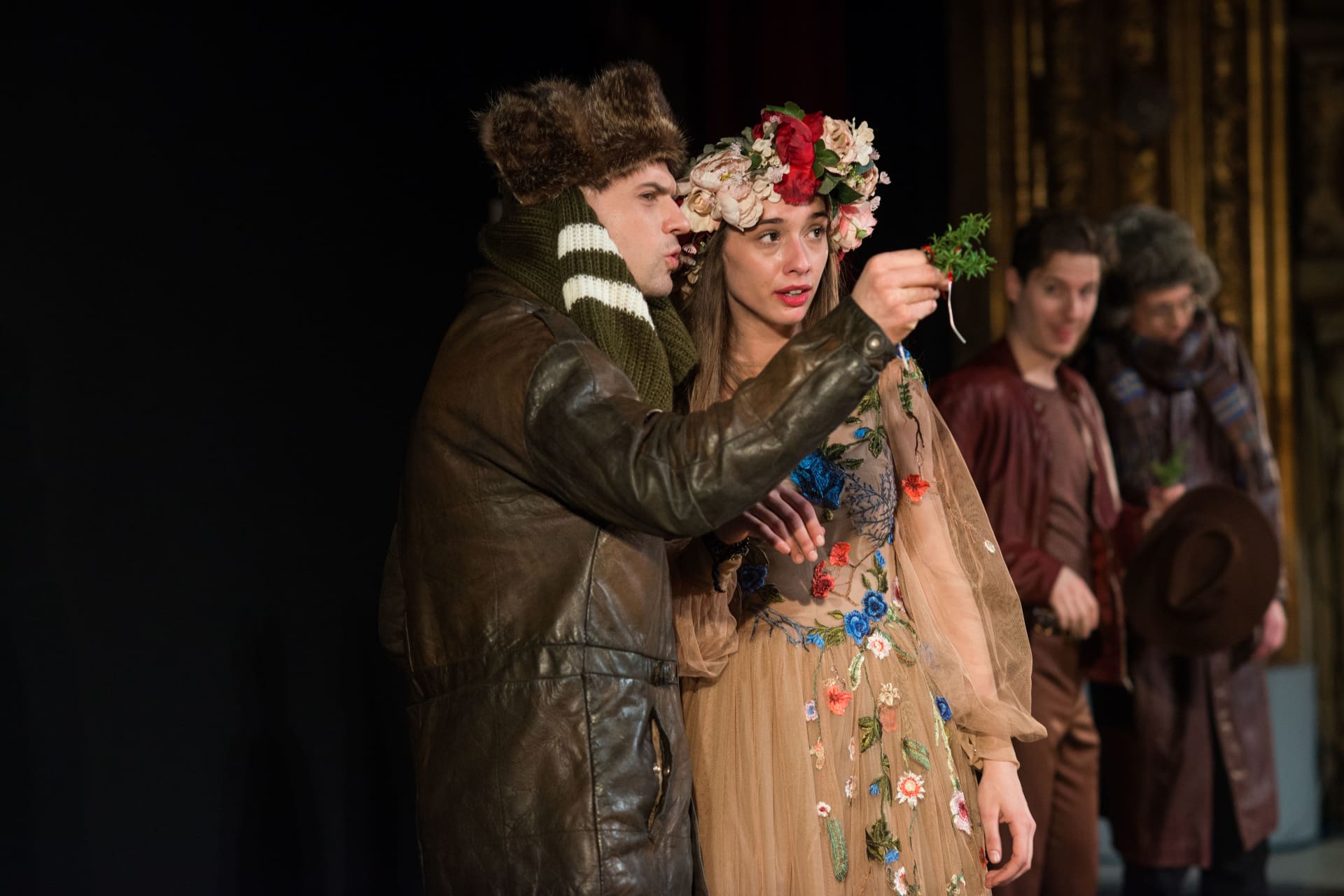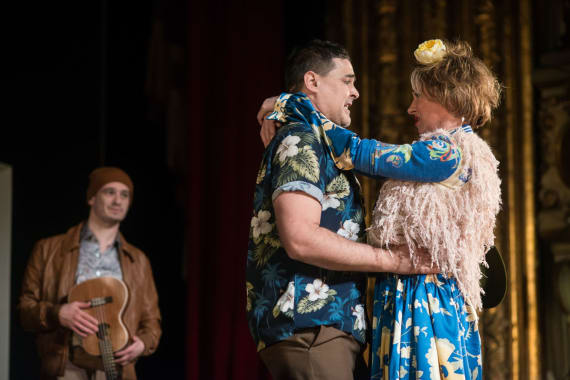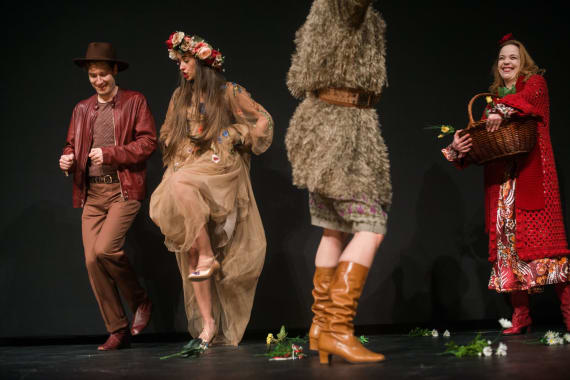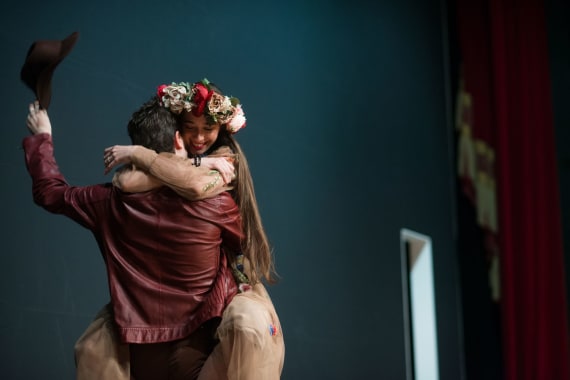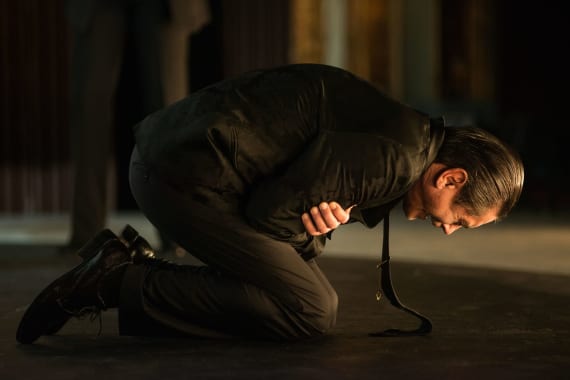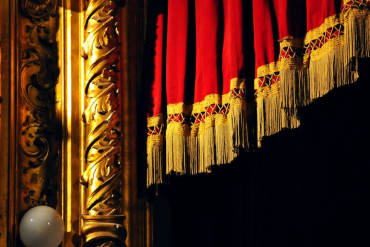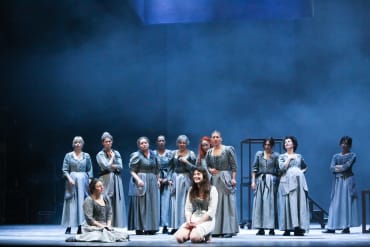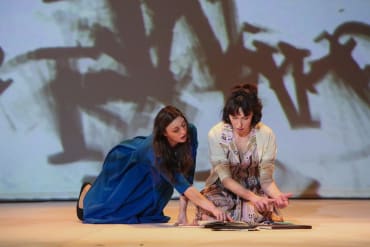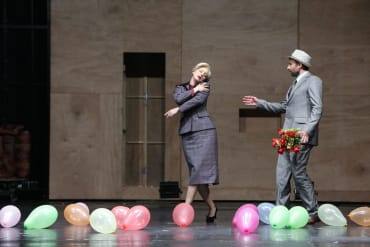One of the last works of the immortal William Shakespeare was written around 1611. This text, as most of his other texts, was inspired by various sources, but the main plot is taken from the pastoral Pandosto by Robert Green, published in England in 1588, while Shakespeare’s play was published in 1623.
The plot of The Winter’s Tale starts in Sicily, where Polixenes, King of Bohemia, meets his childhood friend Leontes, King of Sicily. Polixenes is in a hurry to get back to his country, but Leontes is eager to keep him in Sicily and sends his wife Hermione to persuade his friend to stay a little longer. Surprised by his wife’s success, Leontes suspects the two of being lovers and Hermione of carrying Polixenes’s child, and so orders Polixenes to be poisoned. However, Polixenes manages to escape to Bohemia and Leontes, convinced of his wife’s infidelity, throws her into a dungeon. Hermione gives birth to a girl, but Leontes shows her no mercy, ordering the child to be exposed, and sending Hermione to a public trial for infidelity. Although the Oracle at Delphi tells him that Hermione and Polixenes are innocent, Leontes refuses to believe it. Meanwhile, his son and heir dies, and soon afterwards his wife ends her life. The abandoned child is found by a shepherd on the shores of Bohemia. Sixteen years pass and we discover that Polixenes’s son is in love with a young girl called Perdita, saved and raised by a shepherd. Polixenes opposes the relationship and the young couple run away to Sicily where they find Leontes still in mourning for his family. After numerous plot twists, the two old friends are reconciled and take the young couple to the house where a statue of Hermione stands at the entrance. Leontes is disturbed by the statute which, to everyone’s amazement, comes to life. With its extremely complex plot, this text has all the quantities of a great drama, dealing in eternal topics such as fidelity, marital love, mutual trust, friendships, cruelty, insecurity, sorrow and hopelessness. There are numerous subplots, where comic moments alternate with the adventurous undertakings of the main characters. By staging this large ensemble play, the Drama of the Croatian National Theatre in Zagreb, like many other theatres around the world, will mark the 400 years since the death of one of the greatest theatrical authors in history.
Polly Tritschler, an English director, one of the best of the younger generation in Great Britain. She was a successful actor as a child and performed in minor roles in Royal Shakespeare Company productions from the age of 12. During her studies at Oxford University, she became interested in directing and worked as an assistant director in London’s National Theatre, where she got her first directorial opportunity. She debuted with an innovative and provocative production of Sophocles’s Antigone and has directed continuously ever since in many English theatres. She won the prestigious Olivier Award in 2012 for Best Entertainment. This is her first cooperation with the Croatian National Theatre in Zagreb.
Ne smije se zanemariti Dragana Despota kao Leonta, kralja Sicilije, koji je iznimno nadahnuto stvarao duboku intrigu. Osim njega, posebno se istakla i Jadranka Đokić koja je podignula dinamiku predstave na jedan viši nivo, utjelovivši mušku energiju u ženskom tijelu.— 24 express
Najbolje stihove Shakespeare je ovdje napisao o ženama – kraljici Hermioni i njezinoj dvorskoj dami Paulini i zaista Alma Prica i Jadranka Đokić su najbolji glumački dio predstave. One su te kojima vjerujemo, baš kao što vjerujemo Liviju Badurini i Mislavu Čavajdi u ulogama Poliksena i Camilla, dok Luca Anić i Luka Dragić u ulogama mladoga zaljubljenog para koji nadživi sve tragedije, ovdje slave radost igre.— Večernji list
